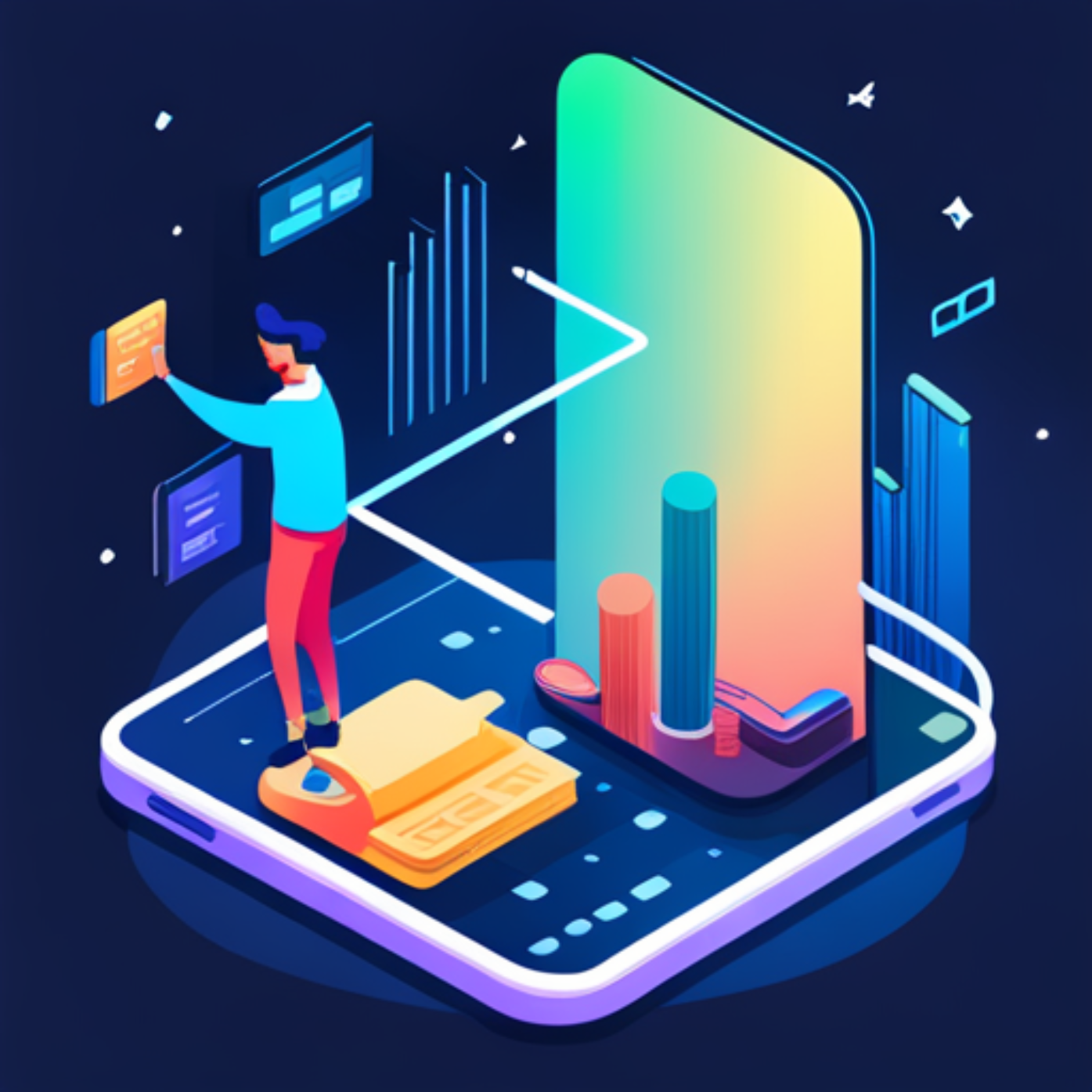
Introduction
The landscape of enterprise resource planning (ERP) systems is evolving rapidly, largely driven by the surge in cloud-based solutions and the ongoing digital transformation in businesses. SaaS ERP systems, with their flexibility, scalability, and cost-effectiveness, are at the forefront of this change. They're reshaping how companies manage their core operations, from finance to human resources. Digital transformation is influencing ERP software trends in several ways. As we look towards the future, several trends and predictions stand out, promising to further revolutionize this space. This blog explores these emerging trends and offers insights into the future of SaaS ERP systems, ERP software development company making it a must-read for business leaders and IT professionals alike.
Current State of SaaS ERP Systems
The landscape of enterprise resource planning (ERP) systems has been undergoing a significant transformation, with Software as a Service (SaaS) models taking the forefront. This shift towards cloud-based solutions signals a key development in how businesses manage their operations, finances, human resources, and more. At its core, this transition is not just about technology but about the increasing need for flexibility, scalability, and efficiency in today's fast-paced digital environment.
Definition of SaaS ERP Systems
SaaS ERP systems are hosted on a cloud platform and made available to businesses over the internet. Unlike traditional ERP systems, which require on-premise installations and extensive IT support, SaaS ERP offers a more flexible and cost-effective approach. Customers can access the software through a web browser without the need for hardware investment and maintenance. This model not only reduces upfront costs but also simplifies the upgrade process, as the service provider handles updates and security patches.
Benefits of SaaS ERP Systems
The benefits of adopting SaaS ERP systems are manifold. First and foremost, they offer scalability, allowing businesses to add or reduce resources as needed. This flexibility is crucial for growing companies or those with fluctuating demands. Furthermore, SaaS ERP systems provide real-time data access from anywhere, enabling better decision-making and increased productivity. They also lower the total cost of ownership by eliminating the need for on-site infrastructure and reducing IT staffing requirements. Lastly, security is often enhanced, as providers can dedicate more resources to protecting data than an individual company might.
Emerging Trends in SaaS ERP Systems
The future of SaaS ERP systems is vibrant and dynamic, marked by several emerging trends that promise to redefine how businesses operate and compete. Driven by technological advancements and changing market needs, these trends underscore the ongoing evolution of ERP solutions towards more intelligent, accessible, and tailored platforms.
Integration with AI and Machine Learning
One of the most significant trends is the integration of artificial intelligence (AI) and machine learning into SaaS ERP systems. This technology enables systems to learn from data, identify patterns, and make predictions, leading to more efficient operations and strategic insights. For instance, AI can optimize inventory management by forecasting demand or detect fraudulent activities in financial transactions. As AI and machine learning technologies mature, their incorporation into ERP systems will become increasingly sophisticated, offering unparalleled analytics and automation capabilities.
Mobile Optimization and Accessibility
Another important trend is the push for mobile optimization and accessibility. In today's mobile-first world, employees expect to access business applications from anywhere, using their smartphones or tablets. To meet this demand, SaaS ERP providers are enhancing their mobile interfaces, ensuring that users can perform a wide range of tasks on the go. This not only improves user experience but also supports remote work models and real-time decision-making. As mobile technology continues to evolve, mobile access to ERP systems will become even more seamless and feature-rich.
Customization and Personalization
Customization and personalization features are also gaining traction in SaaS ERP systems. Businesses increasingly seek solutions that can be tailored to their unique processes and goals. In response, providers are offering more flexible platforms that allow for customized workflows, reports, and dashboards. Additionally, ERP systems are incorporating AI-driven personalization, which adjusts the user interface and functionality based on individual roles, preferences, and behavior. This trend towards more customizable and personalized ERP solutions is set to enhance user engagement, efficiency, and overall satisfaction.
In conclusion, SaaS ERP systems are at the cusp of significant evolution, shaped by the forces of AI integration, mobile accessibility, and customization. These trends herald a future where ERP solutions are not just about managing resources but about enabling smarter, more responsive, and highly personalized business operations. As these trends unfold, companies looking to stay competitive must keep abreast of developments in ERP technology and consider how to leverage these advancements in their own operations.
Predictions for the Future of SaaS ERP Systems
The landscape of Enterprise Resource Planning (ERP) systems is evolving rapidly, influenced by technological advancements and changing business requirements. As we look toward the future, several trends and predictions outline the trajectory of Software as a Service (SaaS) ERP systems, offering insights into the next phase of business management solutions.
Increased Adoption of Cloud-based Solutions
The adoption of cloud-based SaaS ERP systems is set to skyrocket. This surge is driven by their cost-effectiveness, ease of implementation, and the ability to provide real-time data access from anywhere, at any time. Businesses, regardless of their size, are recognizing the benefits of moving their ERP systems to the cloud, such as reduced overhead costs, minimized infrastructure requirements, and enhanced security features. As cloud technologies continue to mature, we can expect an even greater shift towards cloud-based ERP solutions, making them a standard for business operations.
Rise of Industry-Specific ERP Systems
One size does not fit all when it comes to ERP systems. As businesses strive for competitive advantage and operational efficiency, the demand for industry-specific ERP solutions is growing. These systems are tailored to meet the unique requirements of different sectors, incorporating industry-relevant functionalities and compliance standards. From healthcare to manufacturing and retail, customized ERP solutions help businesses streamline their processes, improve decision-making, and enhance customer service. This trend signifies a move away from generic ERP systems toward more specialized and effective solutions.
Continued Growth of Custom Software Development
Custom software development is another area poised for significant growth in the SaaS ERP domain. Businesses are increasingly seeking bespoke ERP solutions that can be precisely tailored to their unique needs and integrated seamlessly with their existing systems. Custom software development enables organizations to build an ERP system that is meticulously aligned with their business goals, processes, and workflow, ensuring maximum efficiency and productivity. This approach also offers the flexibility to adapt and evolve the ERP system as the business grows and its needs change, providing a scalable solution that can support long-term success.
The Role of Digital Transformation in Shaping the Future of SaaS ERP Systems
Digital transformation is reshaping the business landscape, and SaaS ERP systems are at the heart of this revolution. You can also hire saas developer and As companies navigate the challenges and opportunities of the digital age, the role of ERP systems in enabling transformation, driving innovation, and fostering a competitive edge is more critical than ever.
Impact of Digital Transformation on ERP Software Trends
It is accelerating the shift towards cloud-based solutions, pushing the boundaries of what ERP systems can achieve with advanced technologies such as artificial intelligence (AI), machine learning, and the Internet of Things (IoT). These technologies are enhancing the capabilities of ERP systems, enabling predictive analytics, automation of routine tasks, and providing deeper insights into business operations. This integration of cutting-edge technologies within ERP systems is transforming them into powerful tools that can anticipate changes, optimize processes, and make more informed business decisions.
Importance of Scalability and Flexibility in SaaS ERP Systems
In the rapidly changing business environment, scalability and flexibility are paramount. SaaS ERP systems must be able to scale with the business, accommodating growth, and adapting to evolving business models and practices. The ability to quickly and easily add or modify functionalities, integrate with other systems, and configure the software to meet changing requirements is essential. This flexibility ensures that businesses can stay agile, responsive, and competitive in the digital age. As ERP systems continue to evolve, their scalability and adaptability will play a crucial role in supporting digital transformation initiatives and enabling businesses to achieve their strategic objectives.
Conclusion
As we venture further into the digital age, SaaS ERP systems will continue to be a vital hub for organizational operations. With trends pointing towards increased customization, enhanced security features, and the integration of AI and IoT, the future of cloud-based ERP solutions seems both promising and dynamic. For businesses looking to stay ahead, adapting to these trends and considering predictions about SaaS ERP systems evolution is crucial. Embracing these changes not only ensures efficiency and competitiveness but also sets the foundation for sustained growth and innovation.




















Write a comment ...